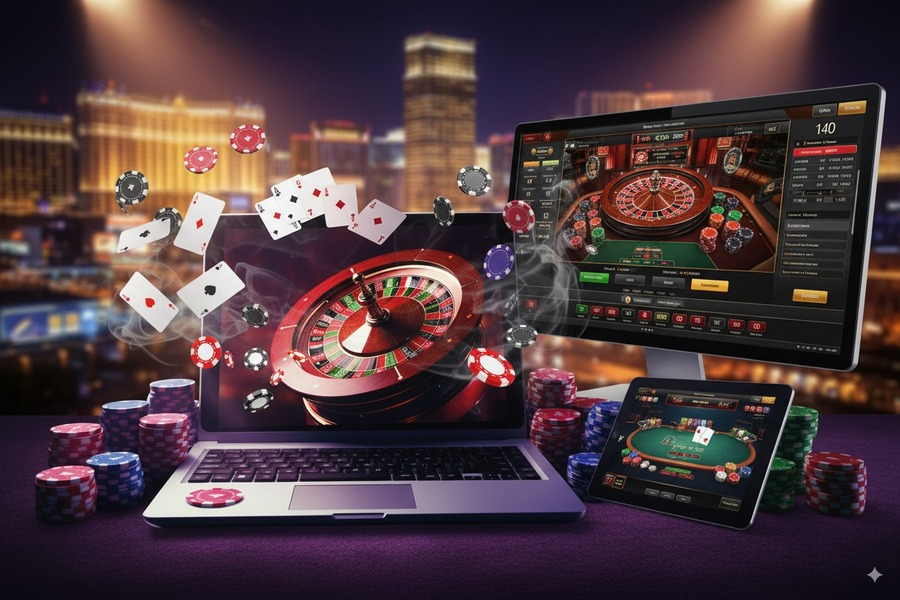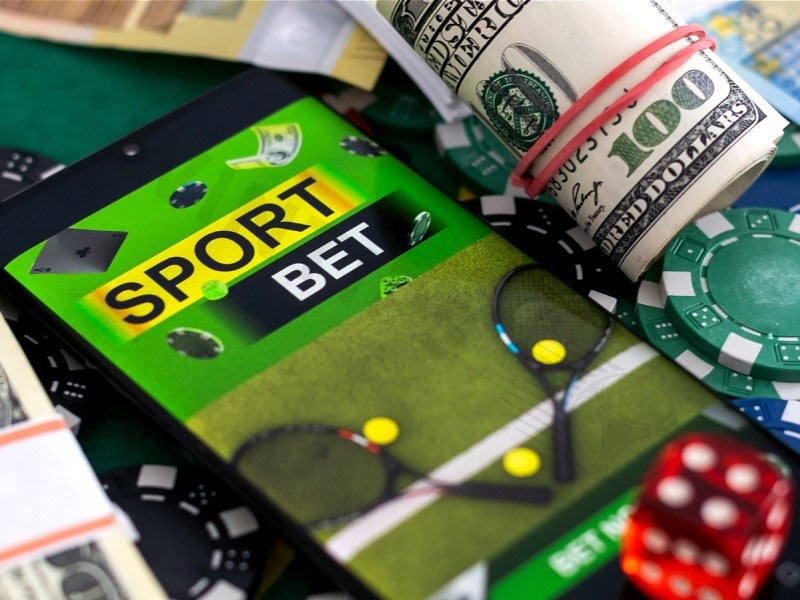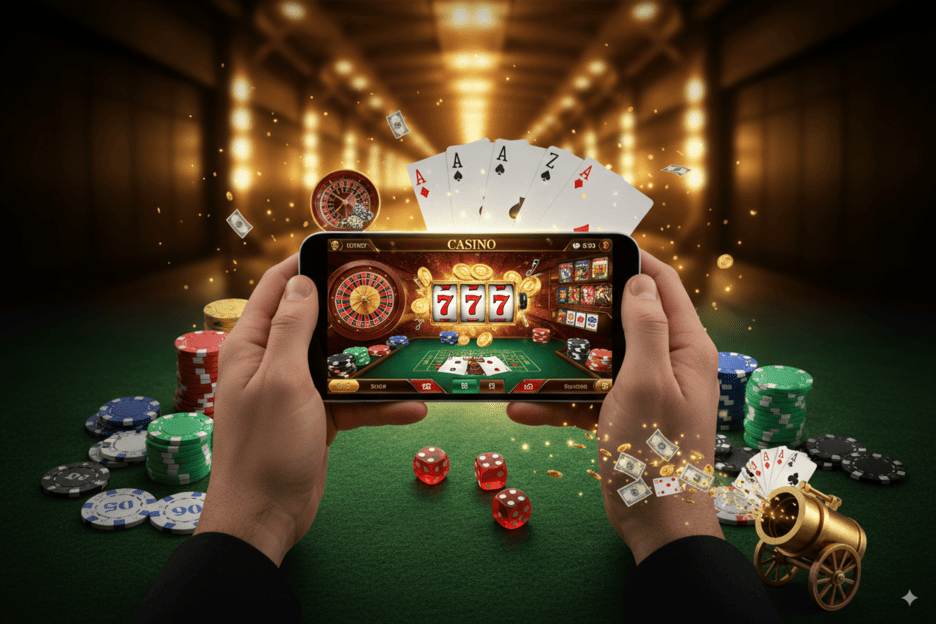
A guide to Blackjack tournaments
Gene
- 0
As someone who has spent over a decade on the inside of the online gaming industry, I’ve had the immense privilege of observing the full, fascinating spectrum of what we call “Blackjack.” For most players, Blackjack is a solitary duel-a personal, mathematical battle between their hand and the dealer’s. It’s a game of skill, of discipline, and of mastering Basic Strategy. But there is another, more explosive and intensely competitive, dimension to this classic game. It is a world where your opponent is not just the dealer, but every other player at your table. This is the world of the Blackjack tournament. On platforms like spinoloco casino online, tournaments are not just a promotion; they are a completely different sport. From my position, where I see the data and analyse the strategies of the players who consistently reach the final tables, I can tell you that a successful tournament player thinks in a profoundly different way than a standard “cash game” player. In this article, I am not just going to explain the rules. I am going to give you the insider’s, professional-level playbook. We will dissect the anatomy of a tournament, explore the crucial shift in mindset required, and reveal the advanced betting and situational strategies that separate the amateurs from the champions.
The Paradigm Shift: From Beating the Dealer to Beating the Players
This is the first and most critical mental leap you must make. In a standard game of Blackjack (a “cash game” or “ring game”), your goal is simple: to finish your session with more money than you started with. Your only opponent is the dealer and the house edge. The actions of the other players at your table are, in the long run, mathematically irrelevant to your success.
In a Blackjack tournament, your goal is completely different: to finish a set number of hands with more chips than any other player at your table.
This seems like a subtle distinction, but its strategic implications are monumental.
- Your Chip Stack is Relative: The absolute value of your chip stack doesn’t matter. What matters is its value relative to your opponents’ stacks. Having 5,000 chips is a great position if everyone else has 3,000. It’s a terrible position if everyone else has 10,000.
- The Dealer is a Tool: The dealer is no longer your primary opponent. They are a neutral, mathematical force, a tool that you and your opponents use against each other.
- Survival is Key, But So is Aggression: You must survive to the end of the round, but simply surviving with a small stack is useless. You must find moments to make aggressive plays to build your stack and put pressure on your opponents.
A tournament transforms Blackjack from a solitary game of mathematical perfection into a dynamic, competitive, and psychological battle.
The Anatomy of a Tournament: Understanding the Format
Most online Blackjack tournaments follow a similar structure.
The Entry and the Bankroll
You will typically pay an entry fee (a “buy-in”). In return, every single player at the table starts with the exact same number of tournament chips. This is a crucial point of fairness. A player with a million-Euro bankroll starts on the exact same footing as a player with a hundred Euros. The only thing that matters is how you play with those tournament chips.
The Rounds and Elimination
A tournament is usually played in rounds.
- The Structure: A round will consist of a pre-determined number of hands (e.g., 30 hands).
- The Goal: At the end of the 30 hands, the top one or two players (the ones with the most chips) from each table will advance to the next round. Everyone else is eliminated.
- The Final Table: This process continues until only one table of players remains-the final table. The players at the final table will then play one last round to determine the final rankings and the distribution of the prize money.
This elimination format is what creates the incredible tension and the unique strategic demands of tournament play.
The Strategic Blueprint: A Three-Act Play
A tournament round is a story with a beginning, a middle, and a dramatic, high-stakes end. Your strategy must adapt to each phase.
Act I: The Early Hands (Hands 1-10) – The “Feel Out” Phase
In the early hands, the blinds are low (if there are any), and everyone has a deep stack. Your primary goal here is information gathering and capital preservation.
- Betting Strategy: Your bets should be conservative. You should typically bet the table minimum or slightly above it. There is absolutely no reason to make a huge, risky bet in the first few hands. A big loss early on can be devastating, while a big win doesn’t guarantee you anything, as there is plenty of time for your opponents to catch up.
- Playing Strategy: You should adhere almost perfectly to Basic Strategy. Do not make any wild, emotional plays.
- The Real Goal: Observation. This is your “reconnaissance” phase. You are not just playing your cards; you are profiling your opponents.
- Who is the “maniac” who is betting aggressively on every hand?
- Who is the “rock” who is betting the minimum and playing ultra-conservatively?
- Who seems to understand Basic Strategy, and who is making obvious mistakes (e.g., hitting on a 17)?
This information will be absolutely vital in the later stages of the tournament. You are building a mental database of your opponents’ tendencies.
Act II: The Middle Hands (Hands 11-20) – The Positioning Phase
Now, you have a feel for the table. Chip stacks are beginning to separate. Your goal is to position yourself for the final stretch.
- Betting Strategy: Your betting should start to become more strategic and relative to the other players’ stacks.
- If you are ahead: You can continue to play conservatively, protecting your lead. You don’t need to take unnecessary risks.
- If you are in the middle of the pack: You need to start looking for spots to make a move. You might slightly increase your bet size when you have a positional advantage (acting after your main competitors).
- If you are falling behind: You need to take a calculated risk to get back in the game. This might mean making a larger bet than usual on a hand where you have a statistical advantage.
- Playing Strategy: You should still be using Basic Strategy as your foundation, but you might start to consider small, strategic deviations based on the situation, which we will discuss later.
Act III: The Late Hands (Hands 21-30) – The “All-Out War” Phase
This is where the tournament is won or lost. It is a completely different game. Basic Strategy is no longer your primary guide. Your primary guide is the chip count of your opponents.
Your decisions are now based on one single, ruthless question: “What action gives me the best chance of finishing with more chips than the person I need to beat?”
This leads to some bizarre and fascinating strategic plays that would be suicidal in a normal cash game.
Advanced Late-Hand Betting Strategy
- If You Have a Significant Lead (Hand 28-30): Your goal is simple: mirror the bets of your closest competitor. If they bet 500 chips, you bet 500 chips. If they bet 1000, you bet 1000. Why? By matching their bet, you guarantee that whatever the outcome of the hand, the chip difference between you and them will remain exactly the same. You are “locking in” your lead.
- If You Are Slightly Behind: You must make a bet that is large enough so that if you win and your opponent loses, you will overtake them. This often means betting the maximum allowed.
- The “Catch-Up” Bet on the Final Hand: If you are behind on the final hand, your only hope is often to bet everything you have and hope for two things:
- That you win your hand.
- That your opponent loses their hand.
- The “Low Bet” on the Final Hand: This is a very clever, advanced tactic. If you have a small lead and you are acting after your opponent, you might bet the absolute minimum. Why? Because you want to see the outcome of their hand first. If they lose, you have already won the tournament without even playing your hand. If they win, you then know exactly what you need to do with your hand (e.g., you know you must win your hand to stay ahead).
Advanced Late-Hand Playing Strategy
This is where you might make plays that go directly against Basic Strategy.
- Scenario: It’s the final hand. You are slightly behind the chip leader. You both bet the maximum. You are dealt a hard 16 against a dealer’s 10.
- Basic Strategy says: Hit.
- Tournament Strategy says: You must look at your opponent’s hand. If your opponent has a 20 and has already stood, your only chance to win the tournament is for the dealer to bust. If you hit your 16, you will likely bust. Therefore, your correct tournament play is to stand on your 16, even though it is a terrible hand. You are no longer playing to win the hand; you are playing for the one specific outcome (dealer busts) that will allow you to win the tournament.
- The “Don’t Bust” Rule: If you have a significant lead on the final hand, your only goal is not to bust. You might stand on a 12 against a dealer’s 10. It’s a terrible cash game play, but it is the correct tournament play because it guarantees you will not lose your chips, and it forces your opponents to be the ones who have to take a risk to catch you.
Mastering this late-game, opponent-focused strategy is what separates the true tournament sharks from the rest. A great platform like Spinoloco Casino Online will often have tournaments running where you can practice these very skills.
The Mental Game: The Unseen Skill
Beyond the maths and the betting, a successful tournament player must have a specific mental fortitude.
Patience and Discipline
The early stages of a tournament can be boring. You will be folding a lot of hands and making minimum bets. You must have the patience to wait for the crucial late stages of the game and the discipline to stick to your plan.
Aggression and Fearlessness
When the time comes to make a move in the middle or late stages, you cannot be afraid. You must have the courage to make a large bet when the situation calls for it. Hesitation is death in a tournament.
Adaptability
You must be able to change your strategy on the fly. The “maniac” who was betting big in the early hands might suddenly tighten up as the final hand approaches. You must be constantly observing and adapting to the changing dynamics of the table.
Conclusion: A Different Game, A Different Breed of Winner
As you can see, a Blackjack tournament is a far more complex and dynamic beast than the simple, one-on-one duel of a standard cash game. It is a multi-layered, strategic war that is played in phases.
To succeed, you must become a master of multiple disciplines:
- You must be a patient Observer in the early game, gathering intelligence.
- You must be a calculated Risk-Taker in the middle game, positioning yourself for the end.
- You must be a ruthless, opponent-focused Tactician in the late game, where every bet is a strategic move against your rivals.
- You must be a master of Basic Strategy, as it is the foundation upon which all your decisions are built.
From my insider’s perspective, Blackjack tournaments are one of the most thrilling and purely competitive experiences we can offer. They strip away the long-term grind against the house edge and replace it with a short, intense, and dramatic battle for supremacy where the best all-around player often emerges victorious.
The next time you see a Blackjack tournament in the lobby of a site like Spinoloco Casino online, I encourage you to see it not just as another game of Blackjack. See it for what it is: a different sport entirely. Study the format, have a plan, and be prepared to adapt. It is the ultimate test of a Blackjack player’s skill, and the thrill of reaching that final table is a prize in itself.


